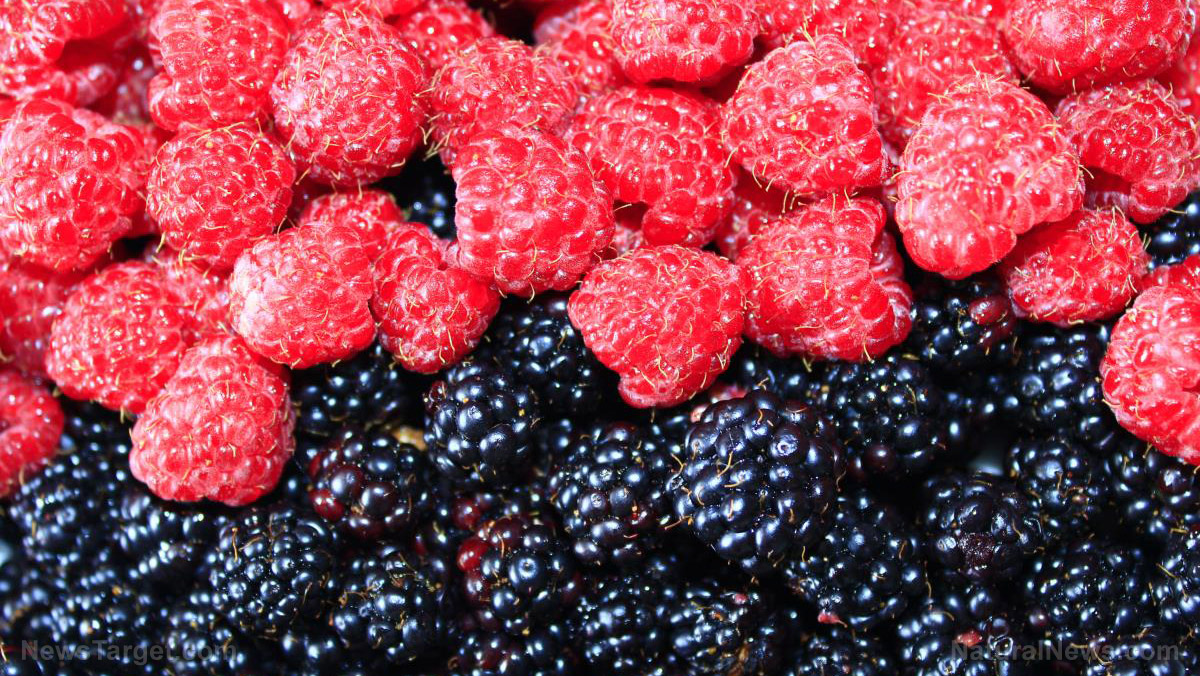Curcumin: A major breakthrough in cancer prevention and treatment?
11/30/2018 / By Vicki Batts

Turmeric has many uses around the world. Whether it’s being used as a spice in curries, as a natural food-based coloring agent or in medicine, this golden-hued root is up to the task. In Ayurvedic medicine, turmeric is prescribed for a number of ailments, including pain and inflammation. As Western science has begun to look more closely at turmeric’s medicinal value, they have discovered one compound in particular may be responsible for turmeric’s amazing health benefits. Curcumin, the active compound found in turmeric, has piqued the interest of scientists, herbalists and natural health enthusiasts around the world.
A growing body of research indicates that curcumin may be especially useful in the prevention and treatment of many different types of cancer. In fact, some people are already finding success in treating cancers with curcumin, even in cases where conventional treatments have failed.
Curcumin curbs cancer
Multiple studies have shown curcumin to be successful in preventing and treating cancer. Current research indicates that curcumin is particularly effective against gastrointestinal cancers. This is largely due to its slow absorption rate, which means higher amounts of curcumin stay in the digestive tract for a longer period of time — and consequently, produce a more potent healing effect.
As reported by Natural Health 365:
Colorectal cancer patients receiving 1,080 mg of curcumin per day between biopsy and surgery (10 to 30 days) showed increased dying tumor cells, lowered inflammation, improved body weight, and higher gene expression indicating cancer suppression. Another colorectal cancer study series showed all of these benefits plus reduced DNA damage and improved protective intracellular scavenging of free radicals.
The compound also appears to be effective in the treatment of multiple myeloma. In 2017, a 67-year-old woman from the United Kingdom came forward about using turmeric to cure her cancer. Dieneke Ferguson was diagnosed with multiple myeloma in 2007. She underwent multiple rounds of chemotherapy and stem cell transplants, to no avail. Ferguson began taking eight grams of curcumin daily, as a last resort — and it worked. Five years after starting the curcumin regime, and Ferguson is virtually cancer-free. She continues to take her curcumin supplement and her cancer cell count is negligible.
Ferguson’s recovery is so remarkable, she was the subject of a paper published in the British Medical Journal.
Jamie Cavenagh, professor of blood diseases at London’s Barts Hospital and co-author of the report, told the U.K.’s Daily Mail, “When you review her chart, there’s no alternative explanation [for her recovery] other than we’re seeing a response to curcumin.”
How curcumin cures
While there is still much to learn about turmeric and its medicinal compounds like curcumin, science is already starting to hone in on how curcumin exacts its cancer-fighting effects. Studies have shown that the spice is effective against many other types of cancer, like breast and pancreatic cancer. More impressive, however, is curcumin’s ability to obliterate cancer cells without harming other, healthy cells or causing unwanted side effects.
Scientists recently uncovered one of the ways in which curcumin kills cancer is through its suppression of the DYRK2 enzyme, which stops protein complexes known as proteasomes that are involved in cancer development. This ultimately disrupts proliferation of cancer cells and slows the cancer’s growth.
And as sources report, curcumin also stops the blood vessels that give tumors life from growing and developing and turns off tumor-growth genes.
In addition to these “cancer-fighting” properties, turmeric also boasts a number of “cancer-preventing” attributes. Studies show that curcumin also helps to protect DNA against damage, while enhancing your immune system’s ability to sniff out and kill off cancer cells.
You can learn more about turmeric and other herbal medicines at AlternativeMedicine.news.
Sources for this article include:
Tagged Under: alternative medicine, anticancer, cancer, curcumin, herbal medicine, natural cures, natural medicine, natural remedies, nutrients, supplements, turmeric



















